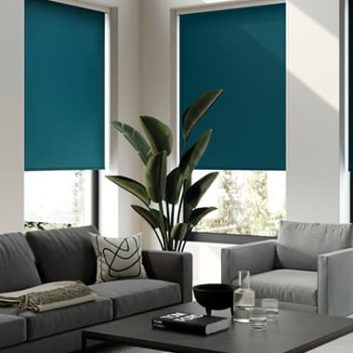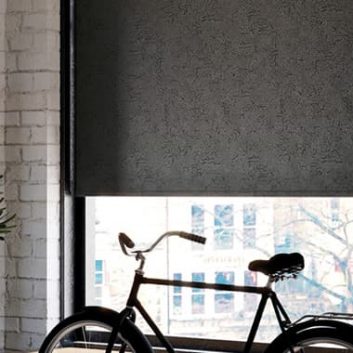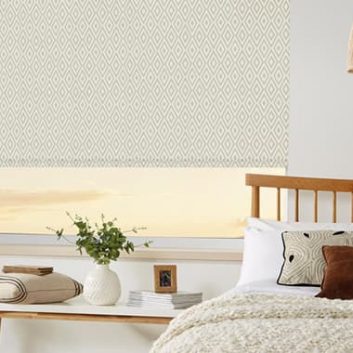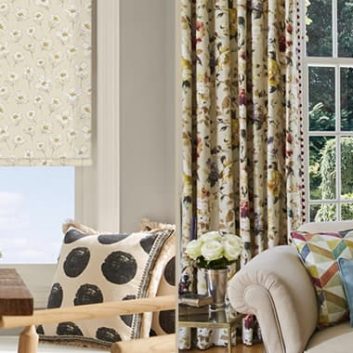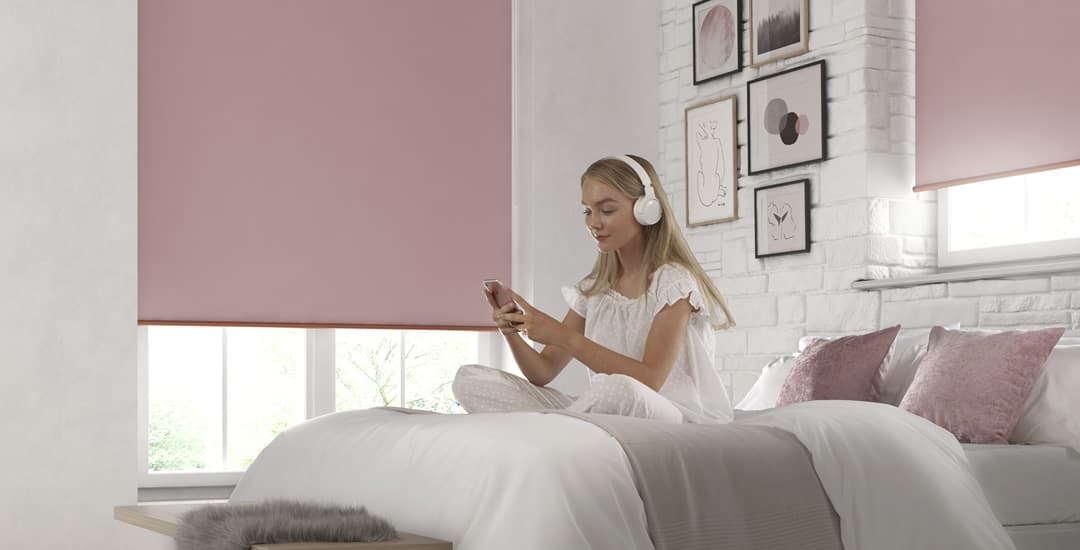
Do blackout blinds help you sleep? Yes, because us humans are diurnal, which means we’re theoretically programmed to be awake during the day and asleep at night, and we’ve evolved with the physical traits (like a certain number and arrangement of rods and cones in the eyes, and light-mediated circadian rhythms) to support this.
This blog post will explain why blackout blinds (or more precisely, darkness during your sleeping hours that can be effectively provided by means of blackout blinds) help you sleep. Read on to learn more.
Do blackout blinds help you sleep, and why?
Yes they do, and because our bodies tell us that darkness means sleepy time, and light means wakey wakey time; whether that darkness actually happens at night and that light comes during the day or not.
While some people aren’t massive fans of getting up before brunch is a meaningful menu option and others refer to themselves as being nocturnal as they prefer to be active during the wee hours, we as a species are “supposed” to sleep when it is dark, not sit about playing Xbox until 4am… Regardless of what we actually do in terms of when we sleep and wake up in reality.
But one thing most folk will agree on, even those that sleep during the day and stay up at night due to the necessity of working nights as opposed to the necessity to destroy your rivals in Diablo IV, is that sleeping is easier when it’s dark.
This remains the case whether that darkness comes from a genuine “absence of sun” or alternatively, due to the presence of sun-repelling accessories, like an eye mask or um, blackout blinds.
The absence of light sends important signals to the body that it’s time to wind down, rest, and regenerate, and we’re still learning more all the time about how acutely important this is; to the point that we’re advised to get off our phones or laptops a certain time before we go to bed, as even that small amount of light can really mess up our internal body clocks.
Blackout blinds are more or less a must-have in the bedrooms of anyone who needs to sleep past dawn, and also for a great many other folk too facing issues with artificial lighting.
That includes challenges like light pollution from streetlights, car headlights, other buildings, and “that one house every street has that blows a year’s lighting budget on illuminated Christmas decorations.”
We all got 99 problems, friend, but blackout blinds mean that external lighting doesn’t have to be one.
Do blackout blinds make you more tired?
Come again, Pol? Do blackout blinds make you more tired!? What’s that about?
Bear with me.
Blackout blinds can help you to get to sleep, and stay asleep; which means that you won’t get the same cues you get when the sun rises that bring us out of sleep naturally, and which tend to happen in natural light regardless of how tired you are if you aren’t doing something to keep the sun at bay.
Now, if you have a good sleeping pattern and get however many hours of sleep a day/night you need as a rule, blackout blinds aren’t going to turn you into Sleeping Beauty and ensure that you never wake up ever again, unless a handsome prince appears to open the blinds for you and restore you to life.
Basically, if you need eight hours sleep and you’ve got around eight hours of sleep, you’re going to wake up at around the eight-hour point either naturally or by means of the alarm going off, without feeling life death, blackout blinds being closed regardless.
However, if your body/mind still needs to sleep when you have to wake up, the sound of the alarm or whatever you use to raise you from slumber suddenly cutting through your dreams is going to be really intrusive, maybe even more so if you have blackout blinds.
Why? Well, sunlight, or a gradual increase in light like you get at dawn, brings the body slowly and gently out of sleep. If you wake naturally thanks to the light increasing, you wake up by passing though the various stages we transition from sleep to wakefulness. That way, you’ll feel less tired than if you’re woken up suddenly (like by an alarm) when your body was still screaming out for rest, even if you haven’t actually slept as much as you really needed.
There is a way round this though, if you regularly find that your alarm wakes you up and that you don’t feel properly rested and somewhat shocked awake in this way because your blackout blinds tricked your body into thinking you were still good to go.
Get yourself a “sunrise alarm clock,” also known by terms such as a daylight alarm clock or wake up light. A proper one by the way, which uses a natural light-emulating bulb of the right frequency and lumens (whatever they are), rather than one advertised on eBay in pidgin English, which won’t have the same effect.
To use these, you basically set a time you want to wake up at, and for 20 minutes to half an hour before this time, the light comes on dimly and very gradually gets brighter and brighter, finishing up bright but not glaring, which is designed to emulate sunlight at dawn.
This should bring you naturally out of sleep like waking up gradually with the sun would, so that you’re not shaken out of REM and left wondering where the hell the dragon went, flailing about with your eyes gummed together and your ears pleading for mercy by that BEEPBEEPBEEP shrieky alarm sound that literally nobody ever wants to hear at any time of the day or night.
There’s quite a lot going on when it comes to the potential application of blackout blinds, actually…
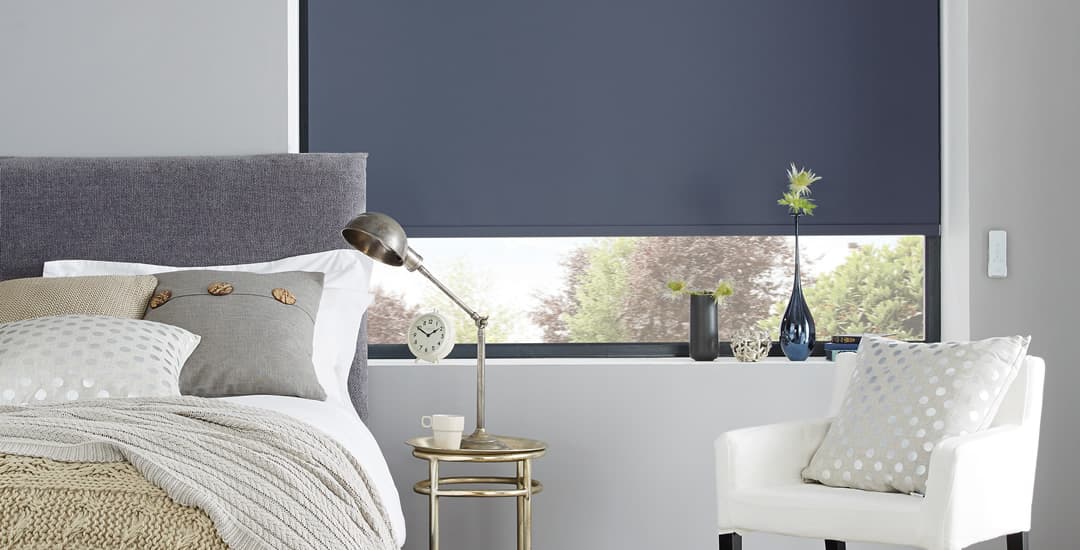
Here’s my quick-and-dirty round-up.
- Blackout blinds help you to regulate and so, improve your sleep; enabling you to get the number of hours of darkness of your choosing, rather than the number that the sun decides to dish out.
- Blackout blinds can be a lifeline for shift workers to help them to avoid shift work disorder, and to ease the transition between different working patterns.
- Blackout blinds are also more or less a must-have for night workers, and those on the swing shift, or the “neither here nor there and just as confused” shift, as I used to like to call it.
- Blackout blinds can help to ensure that babies and young children don’t wake up before you’ve had your coffee, which, frankly, might be the most persuasive selling point I’ve got here.
- Blackout blinds have thermally insulating properties, and help to keep your room warmer in winter and cooler in summer.
- Blackout blinds also help to muffle external sound to a degree too.
- Blackout blinds can protect other fabrics and materials in a room from fading or discolouring in the sun.
- Blackout blinds allow you to pretend you’re out when you’re really in and just not answering the door to your needy neighbour, without meaning that you have to freeze on the spot or hide away from the windows until they go away. No wait, that was the most persuasive selling point I’ve got.

